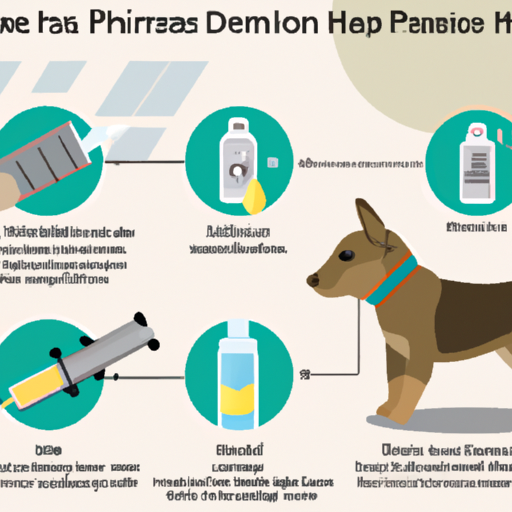A Brief Overview
As a caregiver, you always want the best for your furry friend. So, you’ve probably heard about vaccinations for dogs. After all, they’re an essential part of ensuring our dogs stay healthy. But have you ever heard about the DHPP vaccine?
The DHPP vaccine is a combination vaccine that stands for Distemper, Hepatitis, Parvovirus, and Parainfluenza. It’s often referred to as the “core” vaccine, and it’s one of the first vaccines puppies receive.
Understanding the Components of the DHPP Vaccine
Each component in the DHPP vaccine plays a critical role in protecting your pup from dangerous diseases. Here’s a closer look at these elements:
- Distemper: A viral disease that attacks the respiratory, gastrointestinal, and nervous system in dogs. It’s highly contagious and can be fatal.
- Hepatitis: Canine adenovirus type 1 causes infectious canine hepatitis, a disease that affects the liver.
- Parvovirus: A highly contagious viral disease that causes severe vomiting, diarrhea, loss of appetite, and can be fatal.
- Parainfluenza: This is a highly contagious respiratory virus that is often part of the “kennel cough” complex.
| Components | Diseases |
|---|---|
| Distemper | Affects the respiratory, gastrointestinal, and nervous system |
| Hepatitis | Affects the liver |
| Parvovirus | Causes severe vomiting, diarrhea, loss of appetite |
| Parainfluenza | Respiratory virus, part of the “kennel cough” complex |
The Importance of the DHPP Vaccine for Dogs
You might be asking, “Why is this vaccine so important?” The answer is simple. Each of the diseases that the DHPP vaccine protects against can be severe or even fatal. They’re also highly contagious, meaning they can easily spread from dog to dog. As a responsible caregiver, vaccinating your dog with the DHPP vaccine is one of the best ways to ensure they stay healthy and happy.
When and How Often Should Your Dog Get the Vaccine?
Typically, puppies receive their first DHPP vaccine between six and eight weeks of age, followed by boosters every three to four weeks until they’re 16 weeks old. After that, they should receive a booster every one to two years, depending on your vet’s recommendation.
- First dose: 6-8 weeks
- Boosters: Every 3-4 weeks until 16 weeks old
- Adult boosters: Every 1-2 years
Potential Side Effects of the DHPP Vaccine
Like any medical intervention, the DHPP vaccine can potentially have side effects. Most dogs handle the vaccine well, but some may experience mild symptoms such as soreness at the injection site, mild fever, decreased appetite, and lethargy. More serious side effects are rare but can include allergic reactions. Always monitor your dog after any vaccination and consult your vet if you notice anything unusual.
Frequently Asked Questions
Q: Can my dog get the diseases from the vaccine?
A: No. The DHPP vaccine is made from killed or modified-live versions of the virus, which can’t cause the disease.
Q: Is the DHPP vaccine necessary for indoor dogs?
A: Yes. Even indoor dogs can be exposed to these viruses, so it’s important to vaccinate.
Q: Are there any dogs that shouldn’t receive the DHPP vaccine?
A: Dogs with compromised immune systems or who are unwell should not be vaccinated until they’re healthy. Always consult with your vet.
Q: Does the DHPP vaccine protect against all types of hepatitis and parvovirus?
A: The DHPP vaccine protects against the most common strains of these diseases but doesn’t cover every strain.
Remember, as a caregiver, your dog’s health is in your hands. Keep them protected with the DHPP vaccine.



